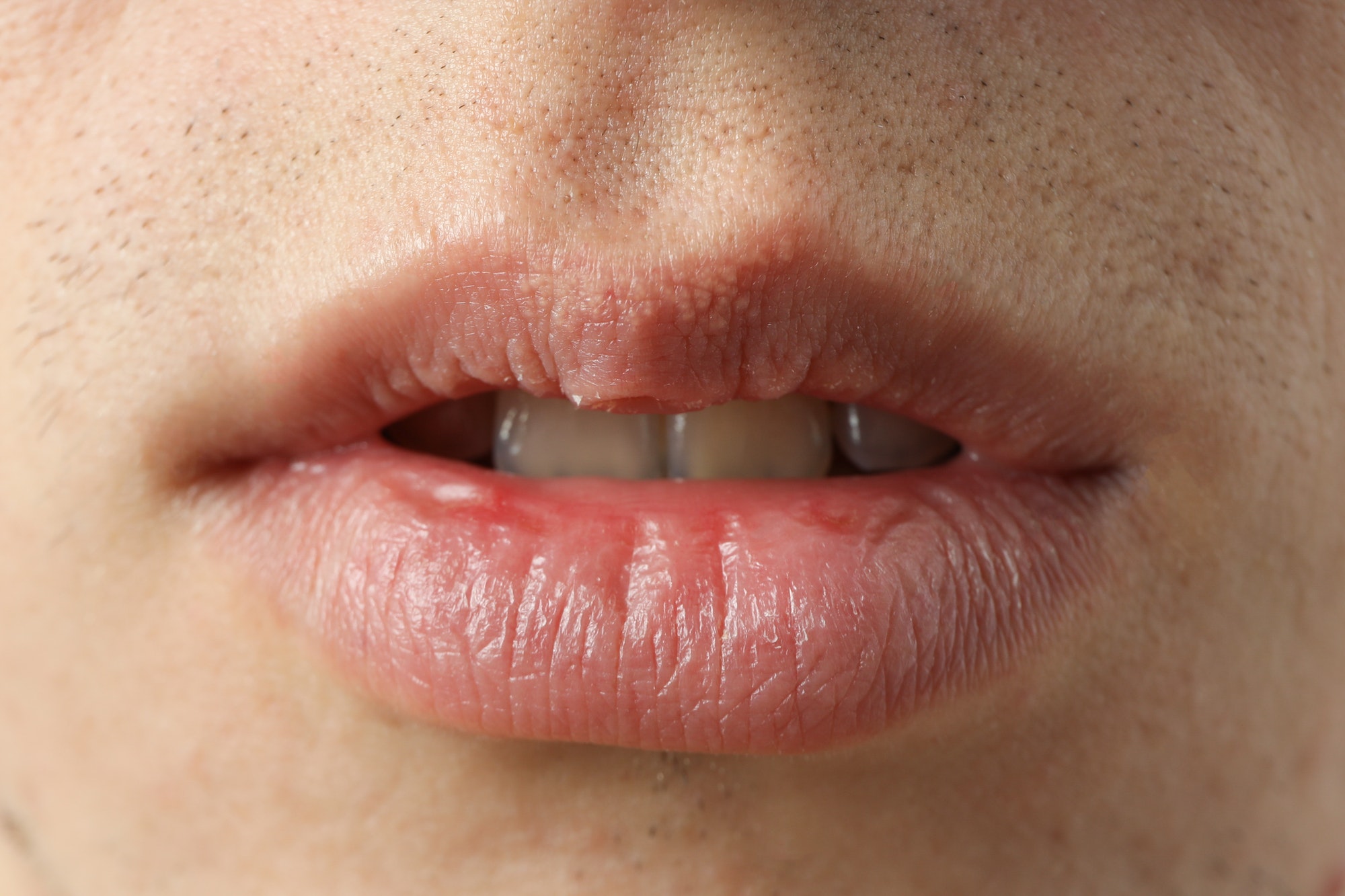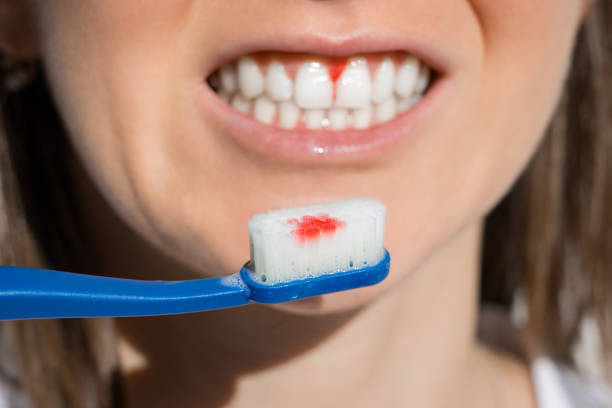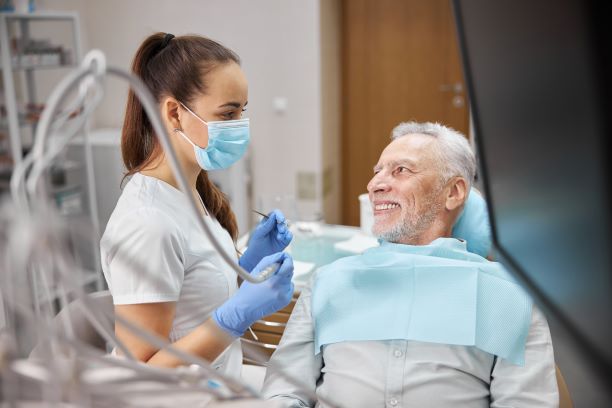Last Updated on: 26th December 2023, 11:07 pm
There are dental diseases in elderly that we should look for before it evolves into more serious illness. The number of older adults is increasing dramatically worldwide. The elderly have a higher risk of developing chronic diseases of the mouth and other conditions that appear more frequently, such as xerostomia (usually secondary to medications) and oral candidiasis.
It is common for older adults to come to the dentist with several missing teeth, bad fillings, and cavities due to the accumulation of damage to their oral health over a lifetime.
At Channel Islands Family Dental, we will help you maintain good oral health by identifying risk factors, recognizing and differentiating normal age-related changes to provide you with a higher quality of life.
What should I know as an older person about oral health?
During your senior years, you may face oral health issues, even if you brush and floss regularly. Wearing dentures, taking medications, and general health conditions are common in the elderly. Fortunately, at Channel Islands Family Dental, we can help you meet most of these challenges successfully.
Common changes of dental diseases in elderly
1. Tooth changes
Teeth often change color and shape with advancing age. Attrition and wear can lead to a loss of tooth length and thinning. As a result, the yellow appearance of the tooth increases.
2. Tooth decay

Several studies conducted by the American Dental Association (ADA) found that both the percentage of decayed teeth and the severity of the lesions increased with age, thus demonstrating that cariogenic activity was maintained throughout life.
There are three fundamental requirements for the development of dental caries:
- That the predominant microorganisms in the mouth be cariogenic bacteria.
- That there is a food source for these bacteria.
- There must be a suitable environment for bacterial replication to occur on the teeth.
In addition to these elements, many older people consume a diet rich in carbohydrates, and these soft diets are much more cariogenic.
Periodontal disease and bone changes
In the older adult with periodontal disease, changes occur in the periodontal cells that intensify bone loss. Under normal conditions, the skeleton remodels. In postmenopausal osteoporosis, the loss of estrogen leads to an imbalance between bone formation and bone resorption due to which total bone loss occurs. Age is not a risk factor for periodontal disease but is associated with a decrease in oral hygiene, as well as certain habits and nutritional deficiencies that constitute risk elements.
Evaluation of the bones of men and women between the ages of 35 and 70 years has shown that they become more fragile. Changes in bone structure affect bone strength, and these changes are reflected in increased tooth loss in the elderly.
Changes related to salivary glands and xerostomia
Dental research from the National Institute of Dental and Craniofacial Research states that there is an age-related decrease in saliva production. Xerostomia, which causes loss of taste and swallowing difficulties, is common in the elderly. Salivary flow and swallowing are important protective mechanisms against pathogens in the oral cavity, and difficulties may exist in the elderly.

Xerostomia is the sensation of dry mouth and is caused by a decrease in saliva secretion and affects 29-57% of the elderly population. It is a side effect of more than 500 medications, including those used to treat allergies or asthma, hypertension, high cholesterol, pain, anxiety or depression, Parkinson’s disease, and Alzheimer’s disease. This is one of the reasons why it is essential to talk to your dentist about the medications you take. Your dentist will be able to make recommendations to help relieve the symptoms of dry mouth and prevent tooth decay.
1. Loss of taste

It has been proven that as we age, we lose sharpness in all of our senses. Taste is no exception. Not only does the number of taste buds decrease with age, but each remaining taste bud also begins to shrink. Sensitivity to sweet, bitter, sour, salty, and umami tastes begins to diminish after the age of 60. In addition, the fact that the mouth also produces less saliva can affect the sense of taste.
2. Difficulty in chewing
The lack of teeth means that the dentition does not work as it should, perfect gear for biting, breaking down, and chewing food. Perhaps when we are young, we do not notice it, but in old age, we will have to face the fact that, when chewing certain foods, we will hurt our gums, which will have lost much of their strength. In addition, we may begin to notice that healthy teeth begin to move as their antagonists or adjacent teeth no longer support them.
3. Oral candidiasis
It does not usually present discomfort and, for that reason, the person is often not aware that he or she has oral candidiasis. We recognize it because it presents the appearance of whitish spots on the tongue and mouth, but when scraped, there is reddened tissue that may bleed. In older people, it is usually caused by the use of dental prostheses combined with poor hygiene or more specific problems such as diabetes, dry mouth syndrome, or prolonged intake of certain medications.
4. Oral cancer
The likelihood of oral cancer increases with age. Most people who develop these cancers are older than 55 when the cancer is detected. In addition, recent research from the National Institute of Dental and Craniofacial Research has found that there is also a link between infection with human papillomavirus (HPV), a sexually transmitted disease, and some types of mouth cancer.
It is important to detect mouth cancer early because treatment works best before the disease has spread. Pain is not usually an early symptom of the disease, so watch for any changes in your mouth, especially if you smoke or drink.

If you have any of the following symptoms for more than two weeks, be sure to see a dentist or physician:
- Sore, irritation, lump, or thick patch in your mouth, lips, or throat
- White or red patch in the mouth
- Feeling that something is stuck in the throat
- Difficulty chewing or swallowing
- Difficulty moving the jaw or tongue
- Numbness of the tongue or other areas of the mouth; 3⁄4 swelling of the jaw that makes dentures fit poorly or feel uncomfortable
- Pain in one ear without hearing loss
Most of the time, these symptoms do not mean you have cancer. An infection or some other problem can cause the same symptoms. However, it is important to have them checked because if you have cancer, you can be treated more successfully if it is found early.
How do I maintain good oral health in my senior years?
With proper home care and regular dental checkups, your teeth can last a lifetime. Regardless of your age, keep your teeth and gums healthy by brushing at least twice a day with fluoride toothpaste and mouthwash, floss daily, and visit the dentist regularly for professional cleanings and checkups.
Contact us
If you have any questions about dental diseases in elderly or other topics, you can contact us at Channel Islands Family Dental as well as our page on Facebook. We look forward to your visit and we will make a timely diagnosis. Our dentists in Oxnard, Santa Paula, Ventura, Newbury Park, and Port Hueneme will be able to guide you toward the best treatment to take care of your health and give you back your best smile.



